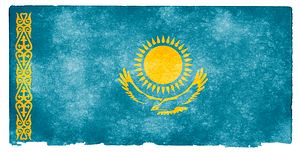While Kazakhstan’s government engages in the latest round of international image-management — via both a Shanghai Cooperation Organization summit and the glitzy World EXPO — a new series of documents and findings may dampen the cheery the public relations efforts spinning from Astana.
First flagged by Human Rights Watch (HRW), the International Labour Organization (ILO) published a series of draft conclusions on Monday about the state of Kazakhstan’s domestic labor relations. The findings, perhaps unsurprisingly, were stark. While the country has thankfully foregone any reprise of the 2011 labor-related violence in Zhanaozen, which led to the largest government-led massacre the country has known since the Soviet Union’s collapse, the ILO cited “grave issues” about Kazakhstan’s union proscriptions. The draft conclusions noted “serious obstacles to the establishment of trade unions without previous authorization in law and in practice.”
One case in particular stood out to the ILO: the “revocation of the registration of the voluntarily unified KNPRK [Confederation of Independent Trade Unions of Kazakhstan],” recently shuttered by authorities. As HRW pointed out, Kazakhstani authorities “harassed [KNPRK’s] chairwoman Larisa Kharkova with spurious criminal charges, and sent two union leaders to jail on politically motivated charges.” The ILO called Astana out for disallowing KNPRK’s union rights, and further demanded that Kazakhstani authorities “are given the autonomy and independence needed to fulfill their mandate and represent their constituents.”
Given Astana’s decision to ignore a prior ILO mission to Kazakhstan, the likelihood of Kazakhstani authorities listening to new ILO findings appears negligible. While Kazakhstan’s Deputy Labor Minister, Birzhan Nurymbetov, has said that Astana may amend its the Trade Union Law, HRW pointed out that even if passed, such amendments “still would not bring the law into compliance with the core ILO convention on free association and organizing in the workplace.” Further, Nurymbetov “failed to respond substantively to concerns about the imprisonment of trade union leaders.”
All told, the ILO pointed to Kazakhstan’s “persistent lack of progress” in its downcast assessment. Such findings, of course, fly in the face of Kazakhstan’s ongoing attempt paper over domestic realities for those flocking to the country for this month’s festivities. (These efforts have led to some of the more curious claims the region’s ever seen, with one American analyst recently positing that Central Asia, including Kazakhstan, is “is quite literally in the center of the world.”) But five-and-a-half years after the Zhanaozen massacre, labor relations in Kazakhstan clearly remain fractious and subject to international criticism, despite Astana’s desires otherwise.

































